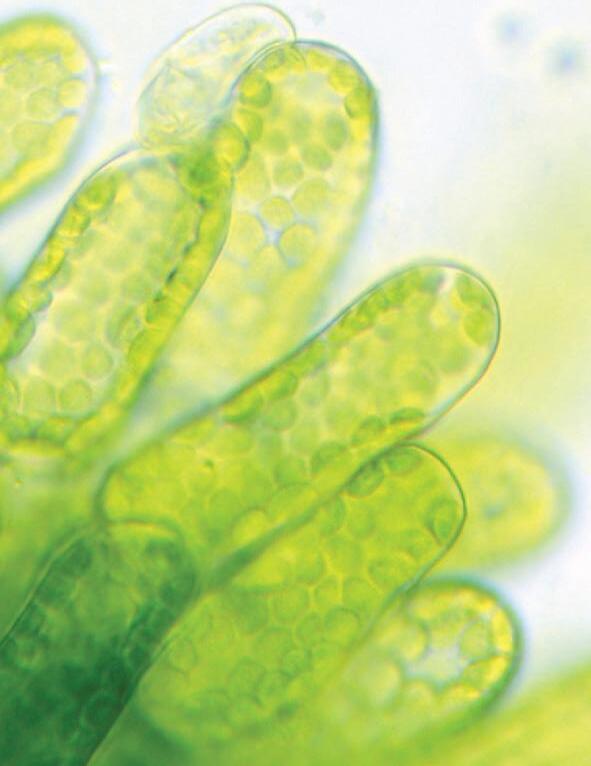
2 minute read
Sustainability
Advancing a healthier planet through nature Sustainability
Our planet faces an array of critical threats, including pollution, climate change, deforestation and the growing scarcity of food, energy and water resources.
At the Biodesign Institute, we confront these issues head-on, leveraging bold, nature-inspired approaches. Our interdisciplinary, solution-driven teams are dedicated to developing groundbreaking solutions that safeguard ourselves and our environment.
Understanding life's energy source
The ability to transform sunlight into energy — photosynthesis — is one of nature’s more remarkable feats. Understanding this process unlocks the potential to develop new forms of clean and abundant fuels. ASU scientists leveraged X-ray free electron laser (XFEL) technology to uncover the inner mechanics of photosynthesis. They used a technique called serial femtosecond crystallography, which was pioneered by Biodesign Institute researchers.
Protecting people from harmful chemicals
In another groundbreaking contribution, a team at the Biodesign Institute played a pivotal role in influencing the FDA’s decision to ban personal care products containing antimicrobials like triclosan and triclocarban. Our research, in conjunction with other institutions, revealed the potential health risks associated with prolonged exposure to these antibacterial agents, such as bacterial resistance and hormonal disruptions.
Another Biodesign team invented a membrane biofilm reactor that uses naturally occurring microorganisms to remove contaminants from drinking water, including nitrate, perchlorate and PFAS (per- and polyfluoroalkyl substances). All of these substances have been shown to cause health problems when they are consumed. PFAS are sometimes called “forever chemicals” because they can take thousands of years to break down in the environment.
At the Biodesign Institute, we are committed to pioneering sustainable solutions rooted in nature’s wisdom, aiming to protect and rejuvenate our precious planet.
Featured capabilities:
Ensuring access to safe drinking water and sustainable energy sources in the face of climate changes.
Enhancing the efficiency of feedstock production for biofuels.
Pioneering the use of biocrust to combat blowing dust and diseases in arid desert environments.
Innovating green materials for manufacturing to reduce plastic waste.





